National and Kapodistrian University of Athens
The National and Kapodistrian University of Athens (NKUA; Greek: Εθνικό και Καποδιστριακό Πανεπιστήμιο Αθηνών, Ethnikó ke Kapodistriakó Panepistímio Athinón),[lower-alpha 1] usually referred to simply as the University of Athens (UoA), is a public university in Athens, Greece.[1][2][3]
Εθνικό και Καποδιστριακό Πανεπιστήμιο Αθηνών | |
 Seal of the National and Kapodistrian University of Athens | |
| Latin: Universitas Atheniensis | |
| Type | Public Higher Education Institution Greece University System |
|---|---|
| Established | 3 May 1837 |
| Rector | Meletios–Athanassios Dimopoulos |
Academic staff | ~2,000 |
Administrative staff | ~1,300 |
| Undergraduates | 40,000 |
| Postgraduates | 14,200 |
| 8,800 | |
| Location | , 37.968198°N 23.778684°E Building details |
 The 19th-century University of Athens historic building designed by Christian Hansen, as seen in 2014. It was once the only University building but now serves as a ceremony hall and rectory | |
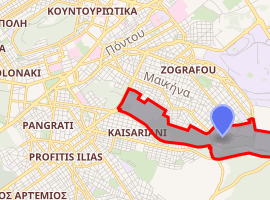
| |
| Campus | Urban, suburban |
| Newspaper | To Kapodistriako |
| Colours | Blue and White |
| Website | en.uoa.gr (in English) |
 | |
It has been in continuous operation since its establishment in 1837 and is the oldest higher education institution of the modern Greek state and the first contemporary university in the Eastern Mediterranean. Today it is one of the largest universities by enrollment in Europe, with over 100,000 registered students.[3][4]
The National and Kapodistrian University of Athens is an integral part of the modern Greek academic and intellectual tradition.[5][6][7]
History
Founding and expansion

The University of Athens was founded on 3 May 1837, by King Otto of Greece (in Greek, Othon) and was named in his honour Othonian University (Οθώνειον Πανεπιστήμιον). It was the first university in the liberated Greek state and in the surrounding area of Southeast Europe as well. It was also the second academic institution after the Ionian Academy. This fledgling university consisted of four faculties; Theology, Law, Medicine and Arts (which included applied sciences and mathematics). During its first year of operation, the institution was staffed by 33 professors, while courses were attended by 52 students and 75 non-matriculated "auditors".[8]
It was first housed in the residence of architects Stamatios Kleanthis and Eduard Schaubert, on the north slope of the Acropolis, in Plaka, which now houses the Museum of the University. In November 1841 the university relocated on the Central Building of the University of Athens, a building designed by Danish architect Christian Hansen. He followed a neoclassical approach, "combining the monument's magnificence with a human scale simplicity" and gave the building its H-shape.[9] The building was decorated by painter Carl Rahl, forming the famous "architectural trilogy of Athens", together with the building of the National Library of Greece (left of the university) and the building of the Athens Academy (right of the university). Construction began in 1839 in a location to the north of the Acropolis. Its front wing, also known as the Propylaea, was completed in 1842–1843. The rest of the wings' construction, that was supervised at first by Greek architect Lysandros Kaftantzoglou and later by his colleague Anastasios Theofilas, was completed in 1864. The building is nowadays part of what is called the "Athenian Neoclassical Trilogy".[9]
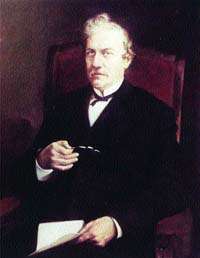
The Othonian University was renamed to National University (Εθνικόν Πανεπιστήμιον) in 1862, following events that forced King Otto to leave the country.
A major change in the structure of the University came about in 1904, when the faculty of Arts was divided into two separate faculties: that of Arts (Σχολή Τεχνών) and that of Sciences (Σχολή Επιστημών), the latter consisting of the departments of Physics and Mathematics and the School of Pharmacy. In 1919, a department of chemistry was added, and in 1922 the School of Pharmacy was renamed a Department. A further change came about when the School of Dentistry was added to the faculty of medicine.
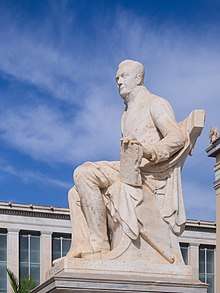
Between 1895 and 1911, an average of 1,000 new students matriculated each year, a number which increased to 2,000 at the end of World War I. This resulted in the decision to introduce entrance examinations for all the faculties, beginning for the academic year 1927–28. Since 1954 the number of students admitted each year has been fixed by the Ministry of Education and Religion, by proposal of the faculties.
Modern history
From 1911 until 1932 the university was separated into the Kapodistrian University (the humanities departments; named after Ioannis Kapodistrias, the first head of state of the independent modern Greek state) and the National University (the science departments). In 1932, the two separate legal entities were merged into the National and Kapodistrian University of Athens.
During the 1960s construction work began on the University Campus in the suburb of Ilissia, which houses the Schools of Philosophy, Theology and Sciences.[10]
In 2013, the University Senate made the decision to suspend all operations in the wake of the Ministry of Education and Religious Affairs cutting 1,655 administrative jobs from universities around the country. In a statement, the University Senate said that "any educational, research and administrative operation of the University of Athens is objectively impossible".[11][12]
Faculties and departments
The University of Athens is divided into schools, faculties and departments as follows. The naming is nοt consistent in English for historical reasons, but in Greek the largest divisions are generally named "σχολές" (schools) and are divided in "τμήματα" (departments), furthermore subdivided in "τομείς" (faculties).[13]
| Schools | Departments |
|---|---|
| School of Agricultural Development, Nutrition and Sustainability | |
| School of Education | |
| School of Health Sciences | |
| School of Physical Education and Sport Science |
|
| School of Theology |
|
| School of Science[24] |
|
| School of Law | |
| School of Economics and Political Sciences |
|
| School of Philosophy[37] |
|
Academic evaluation
In 2015 the external evaluation of the institution cited University of Athens as Worthy of merit.[1]
An external evaluation of all academic departments in Greek universities was conducted by the Hellenic Quality Assurance and Accreditation Agency (HQA) in 2010-2014.[48][49]
Rankings
| University rankings | |
|---|---|
| Global – Overall | |
| ARWU World[52] | 301-400 (2019) |
| CWTS World[53] | 248 (2019) |
The University of Athens is considered one of the leading universities of Greece, a leading European regional university and is present in the top universities annual lists. The most recent is the Webometrics Ranking of World Universities of 2019 that listed it in the 219th place out of 12.000 universities worldwide (1st in Greece, 70th in Europe) with very high perspectives regarding the university's openness.[54]
It is ranked 501st-600th in The Times Higher Education (THE) annual list.[5]
Furthermore, according to the QS World University Rankings annual list it is listed 651st-700th with very high research output.[55] The Shanghai Ranking (Academic Ranking of World Universities) ranked in 2018 the University 301st-400th globally.[56] In 2018 it was listed by the CWTS Leiden Ranking in the 232nd place globally with great publication output in the Biomedical and Health Sciences field.[57]
In 2019 the University was situated in the 73rd place worldwide in the Webometrics Ranking of World Universities by citations in Top Google Scholar Profiles.[58] The USNWR lists it 279th in the world and 1st in Greece.[59]
In the field of Pharmacy and Pharmacology it is listed 101st-150th in the world by QS and 94th by USNWR.[55][60] The last situates the University 114th in Immunology and 166th in Clinical Medicine.[61][62]
Campuses
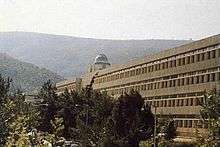
The main campus is at Ano Ilisia (Zografou). There the faculties of Science, Theology and Philosophy are situated. The faculty of Life Sciences is located at Goudi and the faculty of Physical Education and Sports Science is located at Dafni. The faculties of Media, Education, Economics, Law and Public Administration are housed in various buildings near the centre of Athens, along with various administration facilities. University administration was housed initially in a historical neoclassical building near the center of Athens on Panepistimiou Street, but was relocated at the main university campus later.
Campus location Schools Independent faculties Ano Ilisia School of Science School of Theology School of Philosophy Faculty of Methodology, History and Theory of Science Goudi School of Health Sciences Centre of Athens School of Law, Economics
and Political SciencesFaculty of Communication and Mass Media Studies Faculty of Primary Education Faculty of Early Childhood Education Faculty of Slavic Studies Faculty of Turkish and Modern Asian Studies Dafni Faculty of Physical Education and Sport Science
Research
Research in the University of Athens includes almost all research interests. Such research in the university is associated with that conducted by the hospitals and research institutes of the metropolitan area, including the National Research Center for Physical Sciences Demokritos, the National Research Foundation (EIE), the National Observatory of Athens, the Hellenic Pasteur Institute, the Alexander Fleming Biomedical Sciences Research Center, the Athens High Performance Computing Laboratory, the National Centre for Marine Research (NCMR) and the Foundation for Biomedical Research of the Academy of Athens (BRFAA).
Research conducted in the institutes of the metropolitan area of Athens accounted for more than 50% of the ISI-indexed scientific publications coming from Greece.[63][64][65] The Department of Informatics and Telecommunications has been ranked continuously among the 100 most important research institutes in the field of Computer Science, according to Academic Ranking of World Universities (ARWU).[7]
Notable alumni
Throughout its history, a sizeable number of University of Athens alumni have become notable in many varied fields, both academic and otherwise. Moreover, two Nobel Prize-winners have studied or taught at Athens, with both their prizes being in Literature.
Politics
Fifteen Greek prime ministers and three Greek presidents (Konstantinos Karamanlis served as both) have studied at the University of Athens, including Charilaos Trikoupis, Eleftherios Venizelos, Georgios Papandreou, Andreas Papandreou, Konstantinos Karamanlis, Karolos Papoulias, and most recently interim prime minister Vassiliki Thanou-Christophilou. Also, Constantine II, the last monarch of Greece, and Nicos Anastasiades, the current president of Cyprus, attended the university.
The University of Athens has also been home to a large number of other politicians, who were primarily Greek or Cypriot, such as Dora Bakoyannis, Kyriakos Mavronikolas, Georgios Alogoskoufis and Fofi Gennimata.
Science
- Gerasimos Danilatos, physicist, inventor of the ESEM
- Sophia Frangou, psychiatrist
- John P. A. Ioannidis (DSc, 1996 and MD 1990), professor and medical researcher[66]
- Fotis Kafatos, biologist
- Michael N. Katehakis, applied mathematics and operations research
- Nikos Logothetis, neuroscientist
- Evangelos Moudrianakis, biologist
- Dimitri Nanopoulos, physicist
- Costas Soukoulis, physicist
- Georgios Papanikolaou, doctor, inventor of the Pap test
- Panayotis Varotsos, physicist
- Dimitrios Trichopoulos, cancer epidemiologist
Literature and philosophy
- Giorgios Seferis, Nobel laureate (1963), poet[67]
- Odysseas Elytis, Nobel laureate (1979), poet[68]
- Cornelius Castoriadis
- Nikos Kazantzakis
- Emmanuel Kriaras
- Helene Ahrweiler
- Christos Kalpakidis
- Dimitra Fimi
Archaeology
Religion
- Saint Nectarios of Aegina
- Ieronymos I of Athens, Archbishop of Athens and All Greece
- Anastasios of Albania, Archbishop of Albania
- Demetrios Trakatellis, Archbishop of America
Other
- Apostolos Santas
- George Lucas Adamopoulos, founder of the only school in the Philippines founded by Greeks, Adamson University in Manila
- Panagiotis Pikrammenos, judge and caretaker prime minister
- Semni Karouzou, archaeology and curator
See also
Notes
- Labelled and stylized in new logos as National and Kapodistrian University of Athens.
References
- "University of Athens – External Evaluation Report" (PDF). www.adip.gr. 2015. Archived from the original (PDF) on 2019-07-12. Retrieved 2019-08-11."The EEC’s assessment is that University of Athens is worthy of merit. Educate faculty in the need for QA and evaluation. The successful process of self-evaluation can be replicated. An impartial, genuine, honest, open, effective and constructive strategic planning and communication between the Institution and the state needs to be implemented in order to put in place measures for its longer term viability and tradition of excellence. We conclude by pointing out that the recommendations indicated in our report are intended as ways to improve an already excellent Institution. The culture of excellence in research and teaching that the Institution has established for itself was appreciated by every member of the EEC."
- "National and Kapodistrian University of Athens - Internal Evaluation Report 2015" (PDF). modip.uoa.gr. 2015-06-01. Archived from the original (PDF) on 2018-01-12. Retrieved 2018-01-11.
- "National and Kapodistrian University of Athens - Internal Evaluation Report 2015" (in Greek). modip.uoa.gr. 2015-06-01. Archived from the original on 2018-01-11. Retrieved 2018-01-11.
- "National and Kapodistrian University of Athens - Facts and Figures (A Self-Portrait)" (PDF). NKUA.
- "National and Kapodistrian University of Athens - THE World University Rankings-2019". Times Higher Education (THE). 2019-03-04.
- "QS World University Rankings - National and Kapodistrian University of Athens". QS World University Rankings. 2017-09-01.
- "Academic Ranking of World Universities - National and Kapodistrian University of Athens". ARWU Rankings. 2017-09-01.
- "University of Athens – History and Perspectives". www.uoa.gr.
- "University of Athens – Archaeology of the City of Athens". National Hellenic Research Foundation (In Greek). Retrieved 6 October 2014.
- "History and Perspectives". uoa.gr. Archived from the original on 2012-07-14. Retrieved 2010-06-10.
- Korologou, Maria (September 23, 2013). "University of Athens, NTUA Suspend Operations". Greek Reporter. Retrieved 2015-01-29.
- Helena Smith (September 25, 2013). "Austerity measures push Greek universities to point of collapse". The Guardian.
- "Schools and Faculties". www.uoa.gr. Archived from the original on 2018-01-12.
- "Tο υπερσύγχρονο κτήριο της Nομικής Σχολής" (in Greek). kapodistriako.uoa.gr. 2006-02-01. Retrieved 2009-03-14.
- "Department of Primary Education – HQA Final Report" (PDF). 2013.
- "Department of Early Childhood Education – HQA Final Report" (PDF). 2013.
- "Department of Medicine – HQA Final Report" (PDF). 2014.
- "Department of Nursing – HQA Final Report" (PDF). 2011.
- "Department of Dentistry – HQA Final Report" (PDF). 2010.
- "Department of Pharmacy – HQA Final Report" (PDF). 2013.
- "Department of Physical Education and Sport Science – HQA Final Report" (PDF). 2013.
- "Department of Theology – HQA Final Report" (PDF). 2013.
- "Department of Social Theology – HQA Final Report" (PDF). 2013.
- "University of Athens, School of Science". University of Athens.
- "Department of Mathematics – HQA Final Report" (PDF). 2012.
- "Department of Physics – HQA Final Report" (PDF). 2013.
- "Department of Informatics and Telecommunications– HQA Final Report" (PDF). 2011.
- "Department of Biology – HQA Final Report" (PDF). 2013.
- "Department of Chemistry – HQA Final Report" (PDF). 2012.
- "Department of Geology and Geoenvironment – HQA Final Report" (PDF). 2012.
- "Department of History and Philosophy of Science – HQA Final Report" (PDF). 2010.
- "Department of Law – HQA Final Report" (PDF). 2013.
- "Department of Economics – HQA Final Report" (PDF). 2014.
- "Department of Communication and Media Studies – HQA Final Report" (PDF). 2014.
- "Department of Political Science and Public Administration – HQA Final Report" (PDF). 2014.
- "Department of Turkish and Asian Studies – HQA Final Report" (PDF). 2014.
- "University of Athens, School of Philosophy". University of Athens.
- "Department of Philosophy – HQA Final Report" (PDF). 2013.
- "Department of Philology – HQA Final Report" (PDF). 2013.
- "Department of History and Archaeology – HQA Final Report" (PDF). 2010. Archived from the original (PDF) on 2019-05-13. Retrieved 2019-08-11.
- "Department of Musical Studies – HQA Final Report" (PDF). 2014.
- "Department of Theatre Studies – HQA Final Report" (PDF). 2014.
- "Department of English Language and Literature – HQA Final Report" (PDF). 2011.
- "Department of French Language and Literature – HQA Final Report" (PDF). 2014.
- "Department of German Language and Literature – HQA Final Report" (PDF). 2014.
- "Department of Italian Language and Literature – HQA Final Report" (PDF). 2014.
- "Department of Spanish Language and Literature – HQA Final Report" (PDF). 2013.
- "Hellenic Quality Assurance and Accreditation Agency – External evaluation reports of Institutions". Hellenic Quality Assurance and Accreditation Agency. 2016. Archived from the original on 2019-04-10. Retrieved 2019-08-11.
- "Hellenic Quality Assurance and Accreditation Agency – External evaluation reports of Departments". Hellenic Quality Assurance and Accreditation Agency. 2014. Archived from the original on 2019-04-10. Retrieved 2019-08-11.
- "Archived copy" Πανεπιστημιακή Λέσχη 80 χρόνια προσφοράς στους φοιτητές. To Kapodistriako (in Greek). kapodistriako.uoa.gr. 2002-04-15. Archived from the original on 2012-03-18. Retrieved 2015-03-04.CS1 maint: archived copy as title (link)
- "Facilities & Student Life". Uoa.gr. Archived from the original on 2010-02-24. Retrieved 2010-12-23.
- [Academic Ranking of World Universities 2019 http://www.shanghairanking.com/ARWU2019.html]
- [CWTS Leiden Ranking 2019 https://www.leidenranking.com/ranking/2019/list]
- "Placement of the NKUA in the Webometrics Rankings". Retrieved 2019-08-23.
- "National and Kapodistrian University of Athens". Top Universities. 2015-07-16. Retrieved 2019-03-03.
- "ARWU World University Rankings 2018 | Academic Ranking of World Universities 2018 | Top 500 universities | Shanghai Ranking - 2018". www.shanghairanking.com. Retrieved 2019-03-03.
- Studies (CWTS), Centre for Science and Technology. "CWTS Leiden Ranking". CWTS Leiden Ranking. Retrieved 2019-03-04.
- "Transparent Webometrics Ranking – Top Universities by Citations". www.webometrics.info. Retrieved 2019-03-03.
- "Best Global Universities in Greece". www.usnews.com. 2019.
- "National and Kapodistrias University-Pharmacology and Toxicology World Excellence List".
- "Immunology annual list".
- "Clinical Medicine Ranking".
- "Greek Scientific Publications 2000-2014 (Web of Science)" (in Greek). Ekt.gr.
- "Greek Scientific Publications 1998-2012 (Web of Science)". www.ekt.gr.
- "Greek Scientific Publications 2000-2012 (Scopus)" (in Greek). www.ekt.gr.
- "Home | John Ioannidis | Harvard T.H. Chan School of Public Health". Hsph.harvard.edu. Retrieved 2015-03-04.
- "Nobelprize.org". Nobelprize.org. Retrieved 2015-01-29.
- "The Nobel Prize in Literature 1979". Nobelprize.org. Retrieved 2015-01-29.
External links

- National and Kapodistrian University of Athens – Official website (in Greek and English)
- Hellenic Quality Assurance and Accreditation Agency (HQA) (in Greek and English)
- Kallipos (e-books Greek academic publishing) (in Greek and English)
- Greek Research and Technology Network (GRNET) (in Greek and English)
- National and Kapodistrian University of Athens Internal Quality Assurance Unit (in Greek)
- Didaskaleio of NKUA University (Διδασκαλείο Ξένων Γλωσσών) (in Greek)
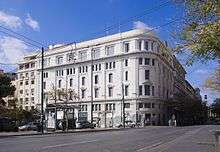
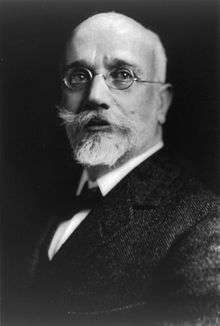

_2.jpg)
